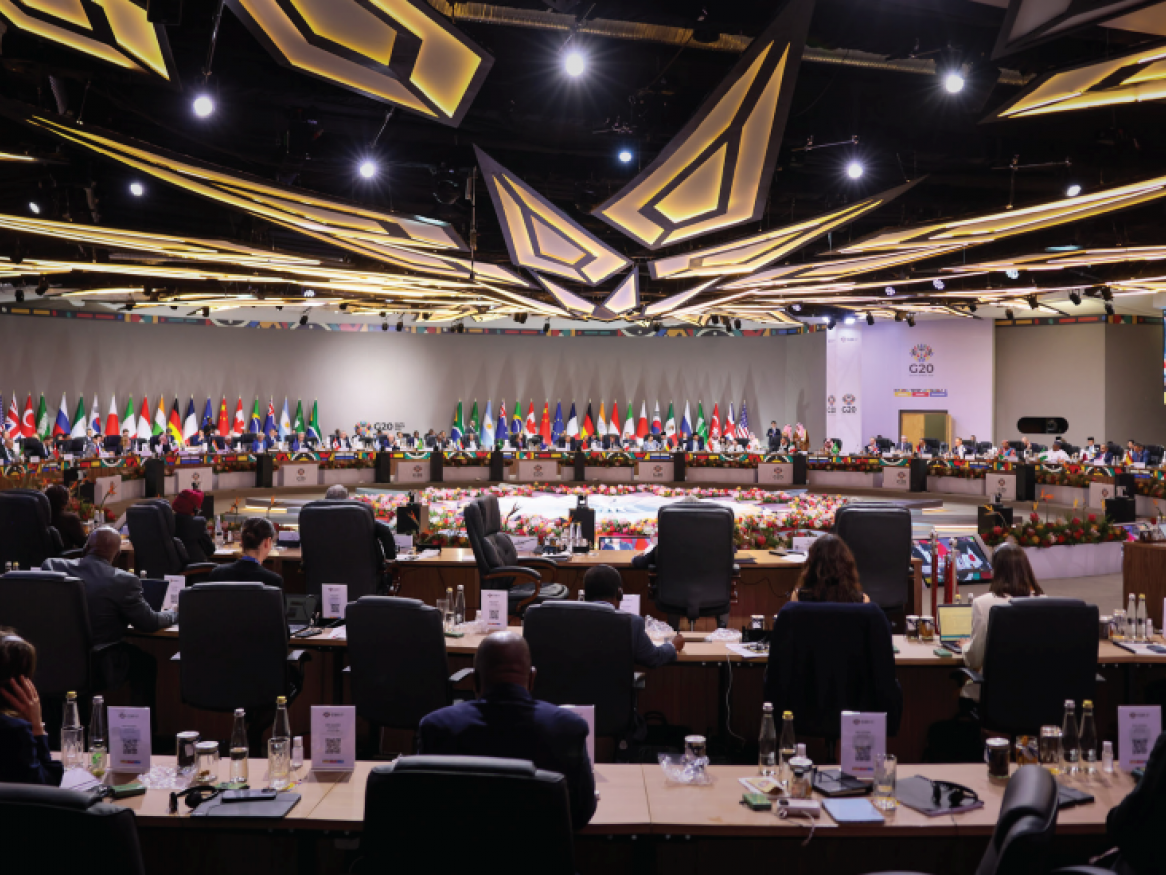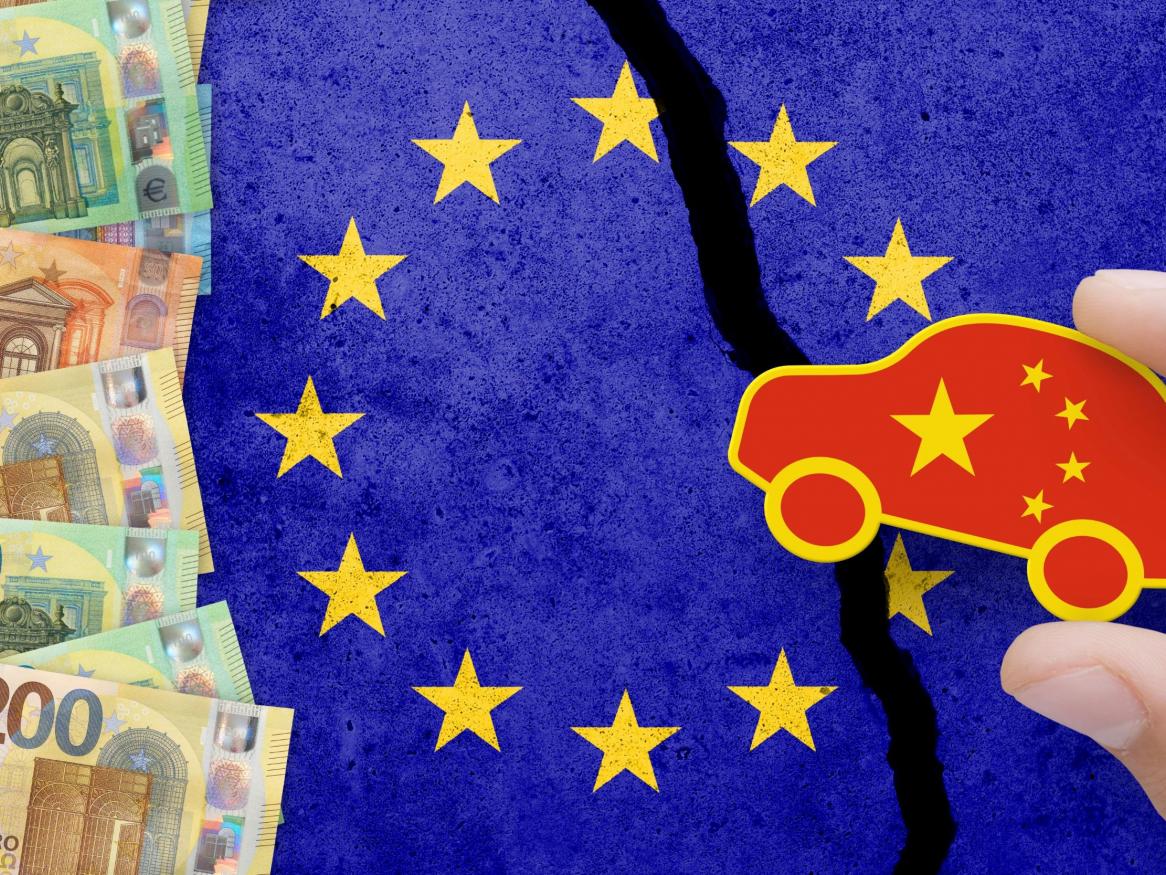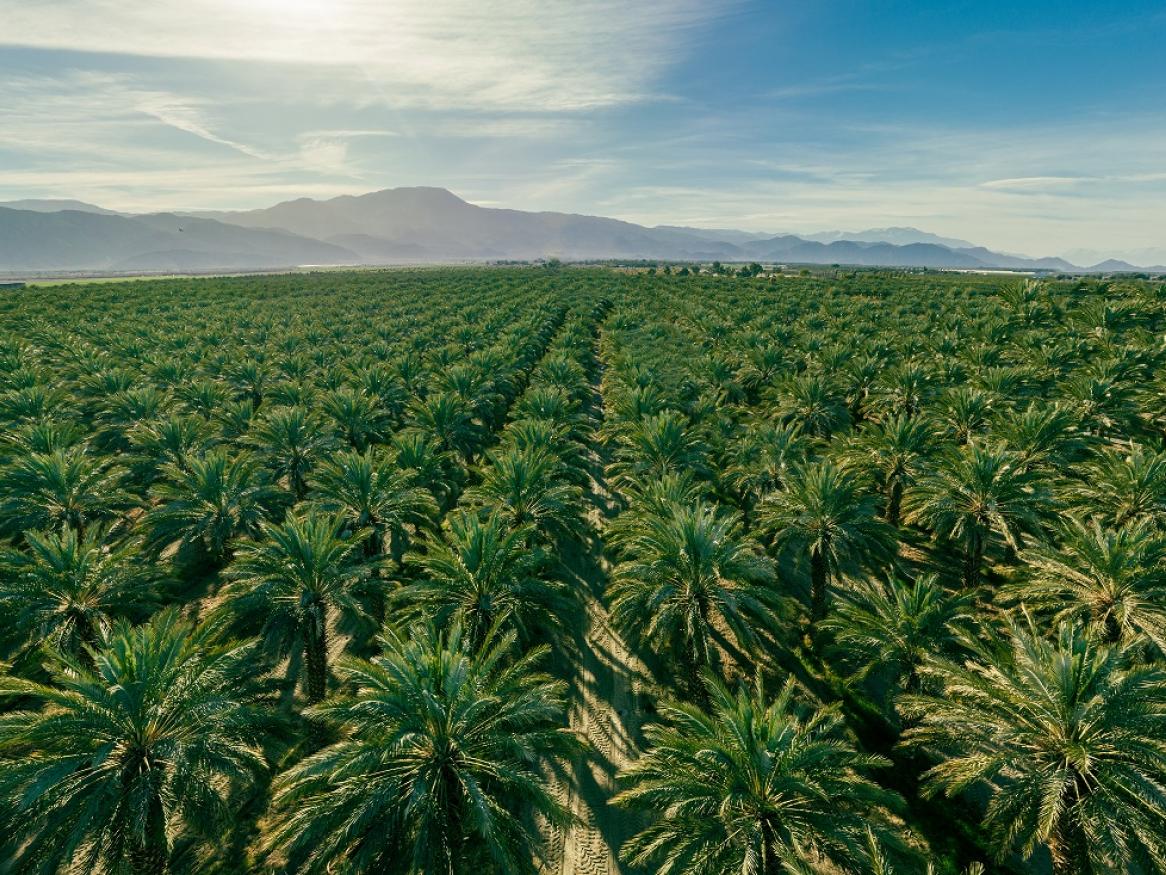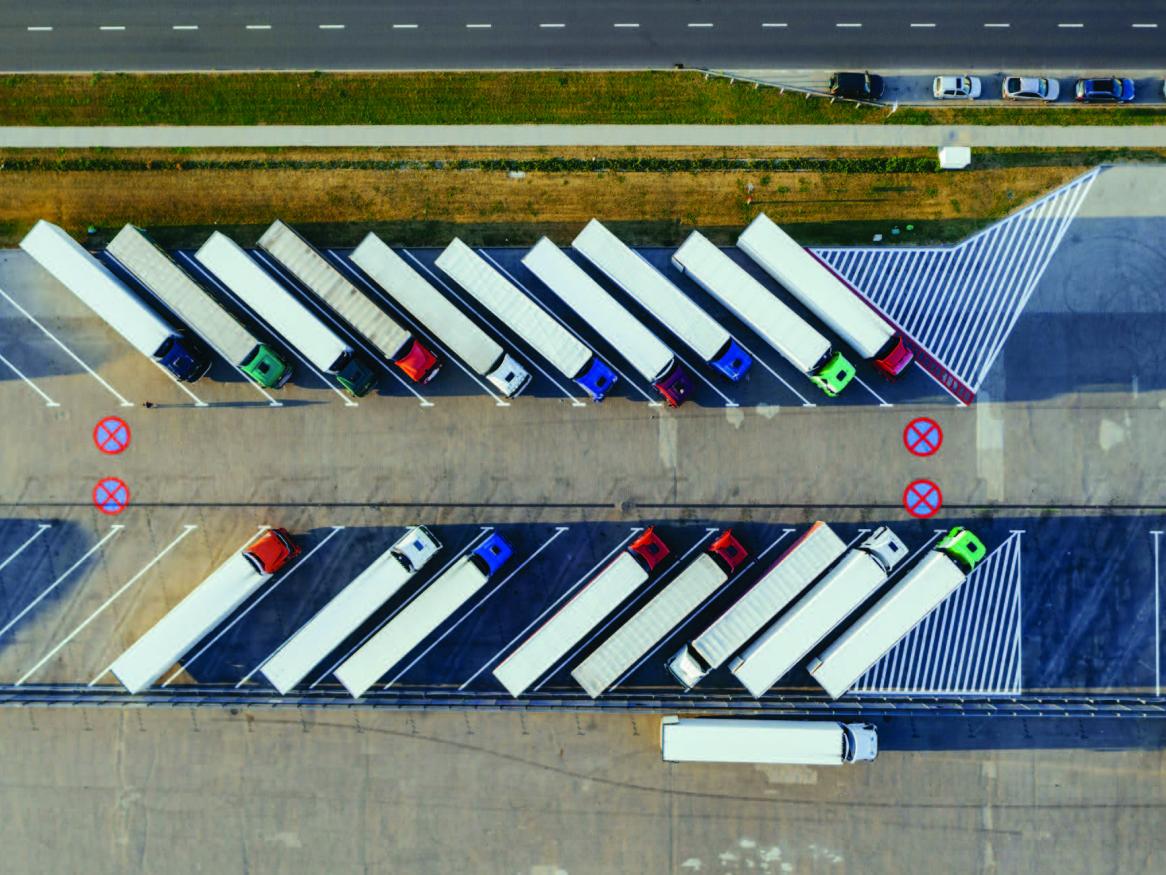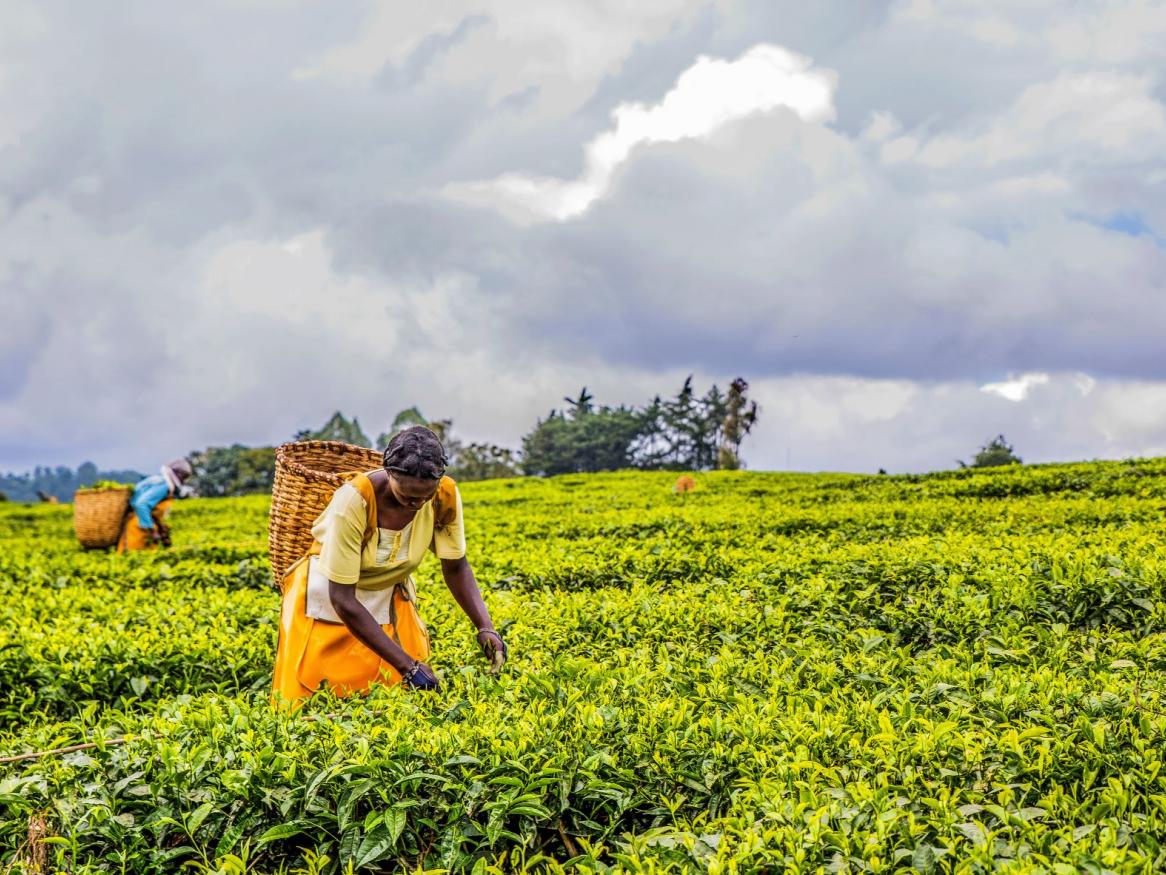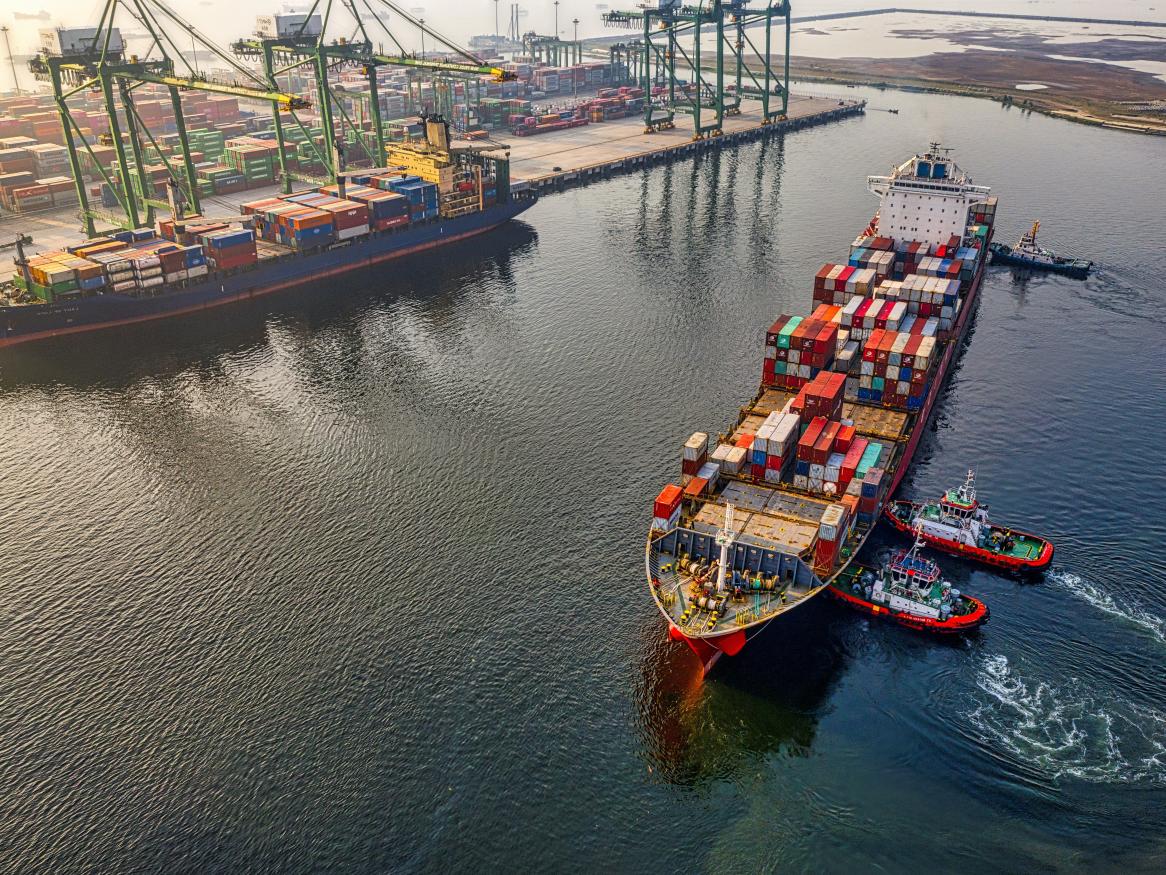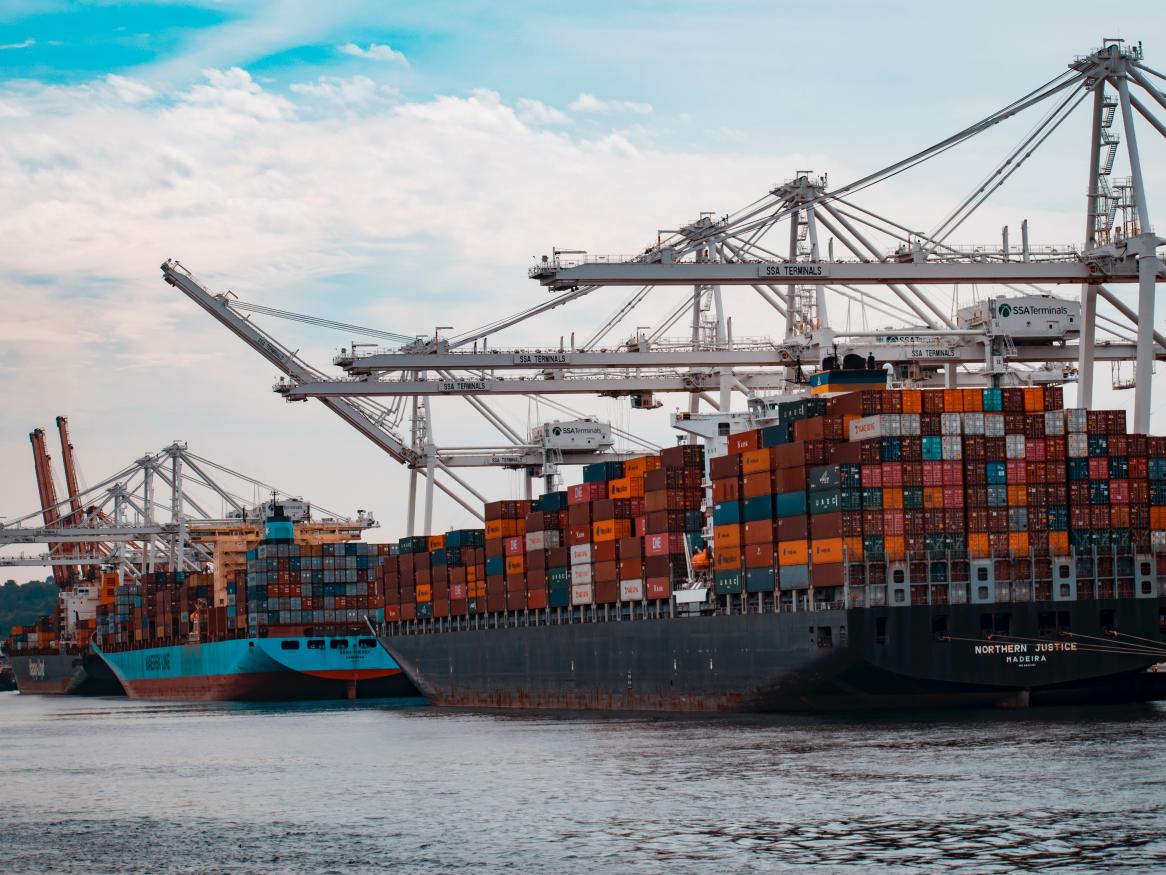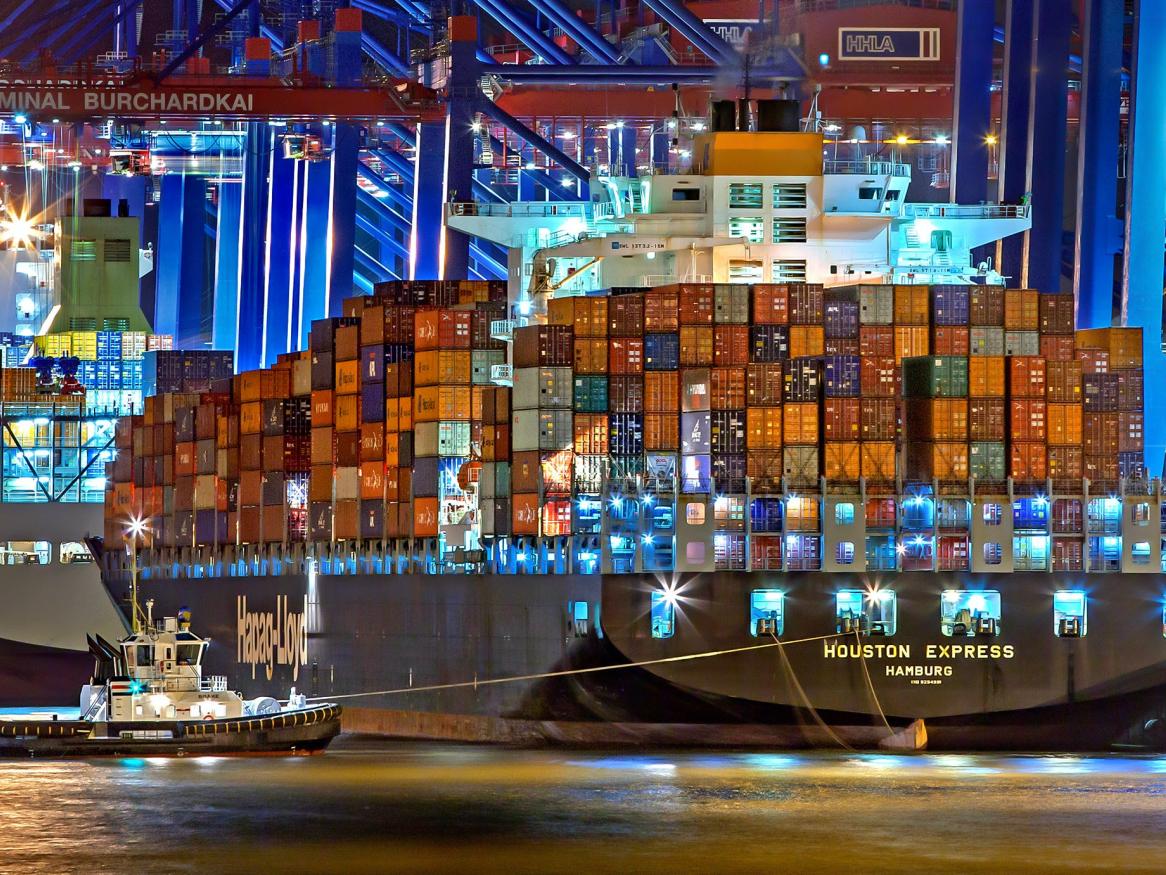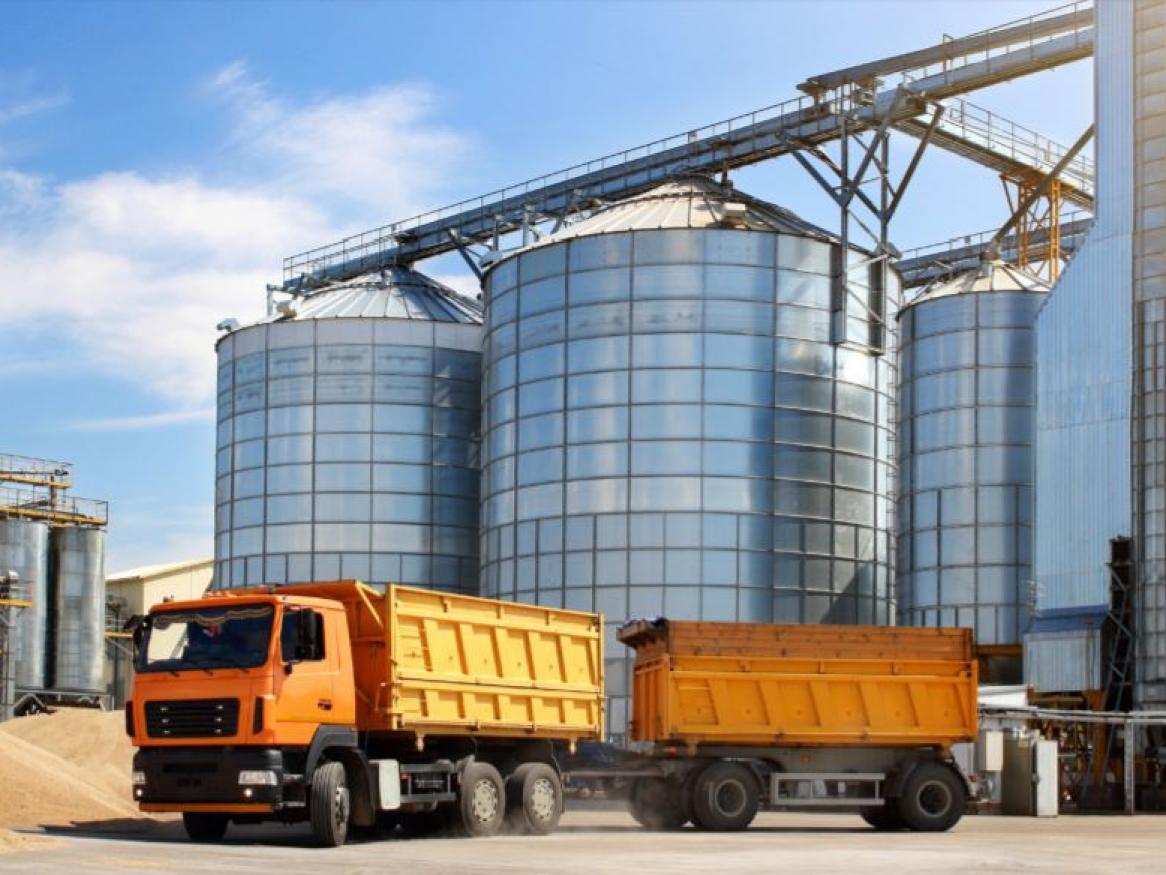Working Papers
IIT’s working papers series conveys current ideas and works in progress on major trade and development issues.
We aim to disseminate our latest research in order to contribute substantially to the knowledge base through informing, influencing, and improving the practice of international trade policy and negotiations.
These papers are technical in nature and written in the style of a journal paper, yet the ideas are presented in accessible formats to enable a wider readership.
The views expressed in a working paper are those of the authors and do not necessarily reflect those of the University of Adelaide or IIT.
Latest working papers
(In search of) The green premium: transaction level evidence of the sustainability advantage
WORKING PAPER 25 This paper examines whether environmentally sustainable products earn a green premium in international trade and how patent protection shapes this outcome. Using transaction-level export data for Italian firms matched with patent information from 2005–2019, the authors show that unpatented green products face market constraints: higher prices are offset by lower export volumes. In contrast, green products backed by patent protection achieve higher quantities and export values. The findings demonstrate that innovation enables firms to convert environmental attributes into stronger export performance.
Read more about transaction level evidence of the sustainability advantageIndustrial Policy in the era of geopolitical fragmentation
WORKING PAPER 27 Rising geopolitical tensions are reshaping global trade and industrial to advance strategic goals. This working paper examines what these shifts mean for emerging markets. Rather than choosing sides, the authors argue that successful emerging-market strategies lie in selective integration: maintaining openness with peers while deploying targeted, rules-based responses to distortions. The analysis highlights practical “do’s and don’ts” for trade and industrial policy in an era of geopolitical fragmentation
Read more about Industrial Policy in the era of geopolitical fragmentationExport restrictions and trade in critical mineral green products for clean energy transition
WORKING PAPER 24
Our latest IIT Working Paper quantifies the economic impacts of export restrictions targeted at critical minerals trade. Costs are high, posing serious challenges to the global green transition. Global cooperation to address these mounting barriers is needed more than ever.
Framing Critical Minerals: Hybridising Economic, Environmental, and Security Objectives in EU Trade Discourse
WORKING PAPER 23:
Critical minerals now sit at the centre of EU trade discourse, where global sustainability goals, competitiveness, and supply-chain vulnerabilities intersect. The paper applies discursive institutionalism and introduces “framing hybridisation” to explain how the EU’s narrative evolved through external shocks, agency shifts, and stakeholder engagement. Using co-occurrence analysis and time-series mapping of DG Trade communications (1989–2025), it identifies a three-phase trajectory: an initial economic frame (liberalisation/competitiveness), a subsequent environmental frame (mining practices and the green transition), and, most recently, a security frame (reducing strategic dependencies and strengthening supply-chain resilience). Since 2020, these frames increasingly appear together, signalling a broader shift in EU trade policy under conditions of global uncertainty.
The EU Corporate Sustainability Due-Diligence Directive and China-EU Trade: Environmental Implications for the Chinese Electric-Vehicle Sector
WORKING PAPER 22 - This working paper analyses how the EU Corporate Sustainability Due-Diligence Directive (CSDDD) will reshape China–EU trade, using the Chinese electric-vehicle (EV) industry as a sectoral lens. By translating voluntary ESG norms into hard-law obligations, the CSDDD extends stringent environmental standards along global value chains and aims to “level the playing field” for firms accessing the EU Single Market. The study traces the Directive’s legal evolution, compares it with China’s ESG framework, and models compliance scenarios for Chinese EV exporters. Findings indicate that while the Directive raises due-diligence and reporting costs—especially for complex battery supply chains—it also offers first-mover advantages to firms that align quickly with EU benchmarks. Competitive outcomes will depend on supply-chain transparency, technology upgrading, and the degree of regulatory convergence between Brussels and Beijing.
Read more about Environmental Implications for the Chinese Electric-Vehicle SectorCountertrade in Modern Geoeconomics: A Study of Indonesia and the Eurasian Economic Union
WORKING PAPER 21: This working paper examines the resurgence of countertrade—an exchange of goods and services without immediate monetary payment—as a strategic economic mechanism within modern geoeconomic contexts, specifically focusing on Indonesia and the Eurasian Economic Union (EAEU). Historically prominent during periods of economic isolation or liquidity constraints, countertrade is now re-emerging amid rising geopolitical tensions and financial uncertainties, serving as a tool for economic resilience and strategic autonomy. The paper investigates Indonesia’s past experiences with countertrade, primarily in defense procurement, and evaluates scenarios for potential future engagement under a proposed Indonesia-EAEU Free Trade Agreement. Using theoretical firm-level analysis, it distinguishes how different Indonesian firm categories—super-large conglomerates, large enterprises, and small and medium-sized enterprises (SMEs)—could benefit from or face challenges in adopting countertrade. Findings suggest that, despite theoretical benefits like reduced currency risk and strategic resource access, practical implementation is complex and cost-intensive, making it most suitable for larger, resource-rich firms capable of navigating these complexities.
Read more about A Study of Indonesia and the Eurasian Economic UnionThe Long and Twisting Road to a Trade Agreement between Australia and the European Union
WORKING PAPER 20 This working paper explores the complex historical and economic relationship between Australia and the European Union (EU), focusing on the challenges in establishing a modern bilateral trade agreement. Although Australia and the EU have shared views on advancing global trade law beyond outdated WTO standards, formal trade negotiations only began in 2017, with several setbacks, including a major collapse in 2021. The paper traces key reasons for this friction, including Australia's strong historical ties with the UK, fluctuating relations with France, and limited engagement from other EU member states. Despite the convergence in trade policies and increased economic ties, factors such as disputes over agricultural access, the geopolitical implications of alliances like AUKUS, and sensitive issues around geographical indicators (e.g., Prosecco and feta) continue to stall progress. This paper underscores that while a trade agreement could yield mutual economic benefits, overcoming entrenched interests and political complexities will be essential for future collaboration.
Read more about The Long and Twisting Road to a Trade Agreement between Australia and the European UnionHow is the ‘Business of Climate’ impacting the ‘Climate of Business’?
WORKING PAPER 19: The European Union’s Green Deal introduces the Deforestation Regulation and Corporate Sustainability Due Diligence Directive (CSDDD) to ensure sustainable supply chains. These regulations pose challenges for exporters from Emerging Asia, especially smallholder producers, due to strict compliance and documentation requirements. Countries like Indonesia, India, and Malaysia are concerned about the economic burden and trade barriers these rules impose. While certification alignment could ease compliance, high costs remain a barrier. For a smooth transition, the EU needs to improve support mechanisms and foster greater collaboration with affected trading partners
Read more about How is the ‘Business of Climate’ impacting the ‘Climate of Business’?Implications of the EUDR on global palm oil supply chains
WORKING PAPER 18: From December 2024, the European Union Deforestation Regulation (EUDR) will require palm oil to come from sources not linked to deforestation. This creates challenges for suppliers, especially small ones, due to strict tracking and compliance rules. Countries like Indonesia and Malaysia are concerned about these challenges. However, aligning with certification schemes like Malaysia's MSPO may help gain EU approval. The EUDR also classifies countries by deforestation risk, making it easier for low-risk nations to comply. For a smooth shift to deforestation-free trade, it's important to extend timelines, support small suppliers, and use local initiatives.
Read more about Implications of the EUDR on global palm oil supply chainsThe Impact of Due Diligence Legislation on International Trade and Business: An Analysis of Potential Trade-Offs
WORKING PAPER 17: As countries increasingly adopt due diligence legislation to promote human rights, labor standards, and environmental sustainability in global value chains, a complex dilemma arises. While these laws commendably aim to address moral and political issues in international trade, they may also impose significant costs on companies, potentially disincentivizing investment and trade. This study examines the impact of due diligence laws on international trade and business, analyzing some 60 cases.
Read more about An Analysis of Potential Trade-OffsMapping networks of export credit for fossil and clean energy infrastructure
WORKING PAPER 16: Official Export Credit Agencies (ECAs) are pivotal in the global energy sector, investing billions annually in fossil fuel projects. They could significantly boost the energy transition by reducing risks in large projects and supporting climate finance goals. Our working paper analyzes ECA financing in Asia-Pacific, highlighting integrated fossil fuel lending across diverse nations without clear geopolitical divides, unlike the fragmented clean energy network dominated by a "China vs. the rest" pattern. To enhance ECAs' climate contributions, the study suggests ending fossil fuel financing, easing clean energy project requirements, increasing renewable energy funding, and expanding ECAs' roles via blended finance. The IEA stresses ECAs are crucial for achieving net zero by 2050.
Read more about Mapping networks of export credit for fossil and clean energy infrastructureThe Value of Cross-border Digital Transmissions to MSMEs in Indonesia: Implications for Participation in the WTO E-commerce Moratorium
WORKING PAPER 15: Cross-border digital transmissions are crucial components of the global trading system. Currently, WTO members do not impose custom duties on inward flows, in-keeping with the WTO’s temporary moratorium. However, it is likely this moratorium will expire, and key members may move to impose taxes in the future. As our latest Working Paper attests, in Indonesia’s case this would amount to significant self-harm.
Read more about Implications for Participation in the WTO E-commerce MoratoriumCarbon Border Tax: How the CBAM could hold great potential for Australian Business
WORKING PAPER 14: Soon the Australian government’s Carbon Leakage review will recommend whether the country should adopt a border carbon tax, or not. In our latest Working Paper Dr Susan Stone sets out her reasoning for why we should.
Read more about How the CBAM could hold great potential for Australian BusinessStanding up to Chinese economic coercion: Is Australia a model of economic resilience?
WORKING PAPER 13
Contrary to some prior research findings, the economic costs to Australia of China’s economic coercion are high. Unfortunately, while the bilateral mood music is improving resetting relations may not be possible, nor likely, as both countries pursue economic diversification from the other. Yet there is much to be gained from a calibrated shift in trade and investment relations, notwithstanding the hostile geopolitical environment. Australia needs to establish a 10-15 years strategy for where it wants the relationship to be, and like every other country in the region, negotiate its differences with China.
Measuring diversification in Australian Goods Exports, 2001-2021: Policy and Technical Considerations
WORKING PAPER 12
China’s blocking of sales of Australian commodities has led to increased interest in diversification of Australia’s exports, to lessen dependence on the Chinese market. Australia’s export diversifications was increasing in the second half of the 21st century, with the Australian government seeking new markets in the emerging economies. However, export concentration, both geographically and in products and commodities, has increased since the start of this century. This paper measures the geographical export concentration and the product concentration of Australian exports to China and the World over the previous 20 years, and the policy implications.
The future of EU trade policy and strategies in a militarised environment
WORKING PAPER 11
China’s economic rise has transformed the international trade system. Furthermore, given its divergent economic model China is challenging the global economic order in ways that previous Asian competitors never did. In response to systemic rivalry and an increasingly tense international environment, the EU seeks to build more “strategic autonomy” from the United States, its main security benefactor. Economically, the EU policy of Open Strategic Autonomy seeks to maintain openness to trade, while developing tools for dealing with coercive and unfair trade practices. This paper identifies the key elements of this policy, as well as the risks it holds for European economic liberalism.
Desktop analysis of agricultural subsidies and environmental impacts
WORKING PAPER 10
There is broad agreement that much of the government support provided to agriculture today is environmentally harmful. This report explores the impacts of production and trade-distorting domestic support in agriculture on climate (i.e., greenhouse gas emissions) and the environment (i.e., water, biodiversity, and land degradation). Global reform is needed, however agriculture is a highly sensitive sector, one that is crucial for national food security. Gaining momentum for policy change can be difficult. Successful policy reform requires coalition building. A sustained evidence-based networking initiative that incorporates active public engagement and global coalition building should be developed on a priority basis.
Improving border adjustment mechanisms
WORKING PAPER 09
Despite several attempts and significant progress, broad agreement on the most appropriate way to manage conflicts between international trade and environmental issues has yet to emerge. Consequently, this paper begins with a search for a set of principles to guide the use of border adjustment mechanisms to ameliorate global environmental problems or, as economists call them, global externalities.
Ten principles are developed, and then applied to the European Union's current CBAM design, and recommendations for improving that design are put forward. As this CBAM is rooted in the EU's Emissions Trading System, broad recommendations for aligning the ETS with the principles are also offered.
How China challenges the liberal trade order: Coercion, contestation and the socialist market economy.
WORIKING PAPER 08
The original China ‘engagement strategy’ was grounded in the assumption that WTO membership would turn China into a liberal market economy. Today the engagement strategy is acknowledged as having failed by China’s largest trading partners, who increasingly view Beijing as a systemic rival. Yet, much international economics still views the engagement strategy as a viable approach for driving liberal reforms within China, indicating a growing gap between political thinking and international economics. This paper addresses that gap, arguing there are theoretical and empirical grounds that support viewing China as a rival economic system that will increasingly challenge core aspects of the existing liberal trade order.
Strengthening African Agricultural Trade: The Case For Domestic Support Entitlement Reforms
WORKING PAPER 07
Reform of domestic agriculture support in the form of financial subsidies has long been a vexed issue. One relatively promising area for reform is to address WTO members’ entitlements to deploy domestic support, rather than aiming to cut actual expenditures per se. Specifically, reducing entitlements would diminish members’ rights to increase domestic support payments in future. Such reductions are best targeted at those subsidies that distort trading partners’ production and trade incentives, rather than at subsidies generally regarded as either relatively benign, or minimally distorting to support domestic farmers and the agricultural economy.
Trade, Technology and Security: Exploring the Linkages.
WORKING PAPER 06
Over the past decade China has developed into a technological competitor during a period of increased geopolitical tensions with its major trading partners. This has resulted in increasing securitization of trade and technology as well as growing techno-nationalism. This working paper explores the linkages between trade, technology and security, focusing on application of national security provisions, how the latter are justified or in breach of existing international trade rules, and potential solutions for balancing the multilateral principle of non-discrimination with the imperative of upholding national security.
Rethinking special and differential treatment in the World Trade Organization
WORKING PAPER 05
The overarching principle of SDT is encapsulated in paragraph 1 of the preamble to the Marrakesh Agreement (1994), establishing the WTO and specifying its functions. The WTO Secretariat lists 155 SDT provisions in the WTO Agreements. Development issues have been dealt with in the WTO for over sixty-years in subsequent ‘Trade Rounds’ and have concluded with varying degrees of success.
Economic Coercion by China: The impact on Australia's merchandise exports
WORKING PAPER 04
Australia is estimated to have foregone export revenue of around US$4.9 billion (A$6.6 billion) over July 2020 to February 2021 as a result of China’s restrictions or discriminatory purchasing affecting eight key commodities – coal, copper ores and concentrates, frozen beef, wine, cotton, barley, rough wood and rock lobster.
Industrial Subsidies and their impacts on exports of trading partners: The China Case
WORKING PAPER 03
This paper explores the impact of Chinese subsidy interventions in the upstream sector on the competitiveness of the downstream sector. In particular, the paper investigates the effect of Chinese subsidies on basic metal products on the export competitiveness of downstream sectors in other major trading countries. To explore the impact of base metal subsidies interventions on the downstream sector of a trading partner, we exploit both temporal variation in subsidy interventions and in base-metal consumption by the downstream sector.
Morphing Risks to Australia’s Goods Trade with China
WORKING PAPER 02
At the start of 2020, the US-China Economic and Trade Agreement (the Phase One Agreement or Agreement) captured the attention of Australian policy makers and business. China had agreed to substantially increase goods imports from the United States in 2020 and 2021 and to accept certain US standards and conformity assessment procedures to assist US companies to access Chinese agricultural markets.
Industrial Subsidies, market competition, global trade and investment: Towards a research agenda
Subsidization by states of their domestic industries to gain competitive advantage abroad is a perennial topic in international trade discussions. As the world moves into a multipolar environment and China rises in economic prominence, the rules governing subsidies, particularly to the industrial sector, are in the spotlight.
Read more about Towards a research agenda

